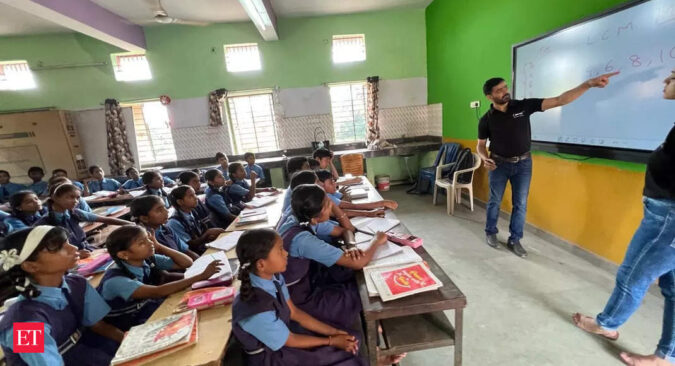A senior government official told ET that the government foresees multiple challenges going forward including standardisation across different qualification frameworks while addressing the unique needs of each stream followed by issues of data security and privacy issues related to Aadhar-enabled data of millions of students in the country.
“The high-level committee will have to address issues related to maintaining the privacy of Aadhar-enable student registration and an academic bank of credit account that will have student’s data,” the official said, adding this will be a huge challenge.
In its recent circular, seen by ET, it has also directed the University Grants Commission and All India Council for Technical Education to set up committees at their levels to fulfill the roles and responsibilities under the national credit framework (NCrF) besides suggesting the related autonomous bodies to use the expertise of the high-level committee for any guidance when required.
The national credit framework (NCrF), which was notified by the government in April this year, divides education and vocational training into eight levels for which credits are assigned. Candidates pursuing any of these will earn credits which will allow mobility of the candidates between the two anytime between class 5 and Ph.D
NCrF is a meta-framework that consists of Ntional School Education Qualification Framework (NSEQF), National Higher Education Qualification Framework (NHEQF) and National Skills Qualification Framework (NSQF).
The main components of the national credit framework includes credits earned by virtue of completed academic education, credits earned by virtue of undergoing vocational education, training/skill program, credit points earned by virtue of relevant experiential learning including relevant experience and professional levels acquired. The notional learning hours under NCrF have been fixed at 1200 per year for which students will be awarded 40 credits while allowing students or learners to take additional courses or projects beyond 40 credits to get additional credits for the same. The assignment of credits is independent of the education streams, subjects or type of learning and will depend solely on the learning outcomes
NCrF provides for assignment, accumulation, storage, transfer and redemption of credits subject to assessment. These credits will be a way to recognize and quantify the learning and corresponding levels and outcomes at different stages of learning and can be transferred for the purpose of equivalence and multiple entry and multiple exit options.
Keeping An Eye:
- High-level committee will oversee challenges in NCrF roll-out
- Committee will look into issues of standardization and data privacy
- UGC, AICTE to set up committees for designing courses
- The NCrF is expected to be rolled out in August 2023
- It aims to integrate education and vocational training
- Candidates to earn credits at each level to enable mobility
- Will give flexibility for multiple entry and exits between the two
